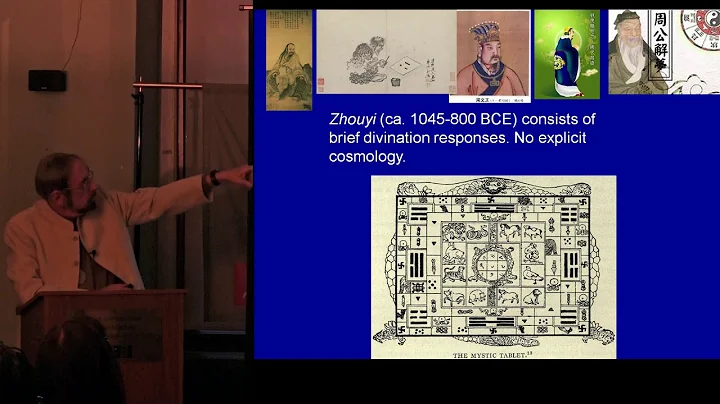We Chinese, I don’t know since when, generally agree with this view:
Japan, our neighboring country separated by a river, and we are actually "the same culture and the same species".
Is this really the case? Is this neighbor who has brought us countless blood and tears really the same origin as us?

"Historical Records" records that during the Qin Shihuang period, the alchemist Xu Fu took a large number of boys and girls, as well as countless gold and silver treasures, and disappeared into the vast East China Sea.
Later, a theory emerged: Xu Fu traveled eastward to Japan, and Xu Fu was the ancestor of the Japanese.
No matter which version of the story is, or how vivid the statement is, the story is not true, and of course it cannot be trusted. Moreover, there is often an unexpected purpose behind the story.
If China and Japan share the same language and culture, there will be no clues to follow. Comparing the deepest things between the two nations is the most convincing.
Those superficial similarities
In terms of geographical location, Japan and we are in the same East Asia, separated by less than a thousand kilometers by a river. It doesn’t seem strange that a neighboring country so close to the mainland has some relationship with us.
Japanese looks like , very similar to ours. Especially in the eyes of Westerners, Chinese and Japanese are the same in appearance and characteristics.

Japan's language , Japanese, is too closely related to Chinese. Japan had no writing in ancient times. Starting from the time of Emperor Onshin, Baekje Doctor Wang Ren of the Jinsho King period brought my country's "The Analects of Confucius", "The Book of Filial Piety" and other documents to Japan. Since then, the Japanese language has been A large number of Chinese characters are introduced and used.
Again, Japan’s architecture is very obviously influenced by ancient Chinese architectural styles.

In addition to the external similarities, are there any similarities between the two countries in terms of culture? Of course,
also exists. Generally speaking, both countries pay attention to being humble and reserved, being cautious and prudent in doing things, respecting elders and caring for children, etc. It seems that people from both countries have some similar rituals on their heads, and the restrictions suppress each individual's personality.
has so many similarities. Does it mean that China and Japan have the same language and species? Then we must first take a look at the differences between Japan and our Chinese nation, which are even incredible differences in our opinion.
Water and fire are different
In many aspects that highlight national characteristics, there are differences between our Chinese nation and Japan, which are similar to water and fire.
- Fertility, marriage, and sexual concepts
The relationship between fertility and marriage is the cornerstone of the development of human society. The disadvantages of marriage between close relatives have been recognized very early in the history of our country, thus forming the tradition of not marrying close relatives. However, incest marriages have been prevalent in Japanese history, especially among the royal family. In order to maintain the purity of their bloodlines, most women from royal families have always been "internally digested."

In terms of sexual culture, taboos in Chinese culture are even stricter. In ancient times, men and women were different, and there were very strict rules for contact between men and women. In Japan, on the other hand, there seems to be no so-called concept of chastity at all. Japan’s sexual culture cannot be looked upon directly by the West, which has always been open-minded.
- Family family system
In the long-term cultural and historical development, China's family culture has developed into a strong blood consciousness. In ancient China, the direct lineage was in order, and the child must be born by oneself; if the child cannot be born, the child must be adopted from a relative in the family.
However, there is no such strong sense of blood relationship in Japanese culture, and adoptions without blood relationship are even prevalent. In China, the inheritance of family property depends on blood relationships; while the Japanese do not value blood relationships when deciding who to hand over the family property to.
In Chinese families, different sons are equal in principle and are equal in inheritance. The traditional Japanese family system is primogeniture, and the eldest son has the highest family status. What's more, the eldest son of a peasant family is like the master, while the other sons have no status and are like servants.

- Survival and values
In Chinese culture, life is the most precious thing in the world. As the saying goes, "Filial piety is the beginning of filial piety." After a person dies, he or she becomes a ghost, and the body is buried in a tomb far away from people's residences.
In Japanese culture, death is not so scary. After death, people will become Buddhas or gods. Death has a sacred meaning and is an art. Death means transcending everything.

The Japanese do not value family relationships as much as the Chinese do, but they have an extraordinary enthusiasm for compliance with collective organizations such as companies and small groups, and they have a very collective concept.
We Chinese also pay attention to the concept of collectiveness, but we also attach great importance to family relationships. Sometimes it seems that we pay too much attention to the private interests of the family and ignore the collective and social morality.

From the perspective of deep national culture, Japan and China are two completely different nations. Maybe we all have East Asian faces, and there are some cultural intersections resulting from exchanges or collisions, but we are not at all "same culture and species".





















